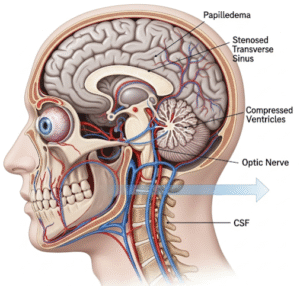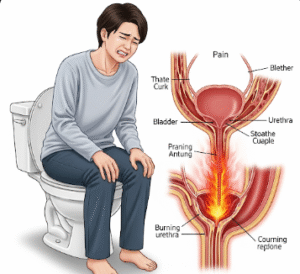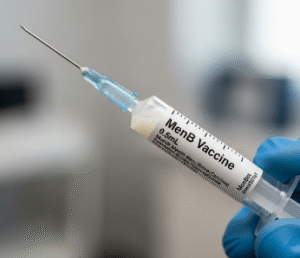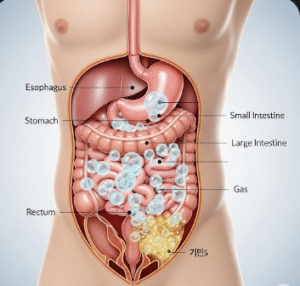Overview
Lymphocytosis is a medical condition characterized by an abnormally high number of lymphocytes in the blood, a type of white blood cell that plays a critical role in the body’s immune response. Lymphocytes include B cells, T cells, and natural killer (NK) cells, all of which protect the body from infections and abnormal cells.
In Korea, hospitals and hematology clinics provide comprehensive evaluation and treatment for lymphocytosis. This includes blood tests, bone marrow studies, and advanced diagnostics to determine whether the condition is reactive (due to infection or inflammation) or malignant (related to blood cancers such as leukemia or lymphoma). Early detection is crucial to ensure appropriate management and prevent complications.
Key Facts
- ➔ Normal lymphocyte counts range from 1,000–4,800 cells/µL in adults.
- ➔ Lymphocytosis is typically defined as a lymphocyte count exceeding 4,800 cells/µL in adults.
- ➔ It can be reactive, due to infections or autoimmune disorders, or malignant, as seen in certain leukemias and lymphomas.
- ➔ Symptoms may be absent in mild cases but can include fatigue, swollen lymph nodes, or frequent infections.
- ➔ In Korea, specialist care is available in hematology and internal medicine clinics, offering precise diagnosis and individualized treatment.
What is Lymphocytosis?
Lymphocytosis refers to an increase in lymphocyte levels in the bloodstream, which may result from various causes:
- ➔ Reactive lymphocytosis: Occurs in response to infections (viral or bacterial) or inflammation
- ➔ Malignant lymphocytosis: Linked to blood cancers such as chronic lymphocytic leukemia (CLL) or lymphoma
- ➔ Clinical significance: While mild lymphocytosis can be temporary and benign, persistent or very high counts may indicate serious hematologic disorders
- ➔ Types of lymphocytosis:
- Absolute lymphocytosis: Total lymphocyte count is elevated
- Relative lymphocytosis: Lymphocytes make up a higher percentage of total white blood cells
What Symptoms Are Related To
Symptoms of lymphocytosis depend on the underlying cause and severity:
- ➔ Swollen lymph nodes (neck, armpits, or groin)
- ➔ Fatigue or weakness
- ➔ Fever or night sweats
- ➔ Unexplained weight loss
- ➔ Frequent infections due to immune system imbalance
- ➔ Enlarged spleen or liver in certain hematologic disorders
- ➔ Asymptomatic cases: Mild lymphocytosis may be discovered incidentally during routine blood tests
Recognizing these signs helps prompt early evaluation and targeted treatment.
What Causes / Possible Causes
Lymphocytosis can be caused by reactive or malignant conditions:
- ➔ Infections:
- Viral infections: Epstein-Barr virus, cytomegalovirus, hepatitis, influenza
- Bacterial infections: Pertussis (whooping cough) and tuberculosis
- ➔ Autoimmune or inflammatory conditions: Rheumatoid arthritis, inflammatory bowel disease, or systemic lupus erythematosus
- ➔ Blood cancers: Chronic lymphocytic leukemia (CLL), acute lymphoblastic leukemia (ALL), or lymphoma
- ➔ Endocrine or metabolic causes: Hyperthyroidism
- ➔ Stress-related or post-splenectomy changes: Rarely, lymphocyte counts may increase temporarily after surgery or stress
Identifying whether lymphocytosis is reactive or malignant is essential for determining the correct treatment.
When Should I See My Doctor
Medical evaluation is recommended if you experience:
- ➔ Persistent fatigue, weakness, or unexplained weight loss
- ➔ Swollen lymph nodes, spleen, or liver enlargement
- ➔ Fever, night sweats, or recurrent infections
- ➔ Abnormal blood test results showing high lymphocyte counts
- ➔ History of blood disorders, autoimmune diseases, or recent infections
Early consultation ensures timely diagnosis and prevents progression of serious underlying conditions.
Care and Treatment
Treatment of lymphocytosis depends on underlying cause and severity:
- ➔ Reactive lymphocytosis: Often resolves once the underlying infection or inflammation is treated
- ➔ Malignant lymphocytosis: Requires hematologic evaluation and treatment, which may include:
- Chemotherapy or targeted therapy for leukemia or lymphoma
- Immunotherapy or monoclonal antibody therapy
- Bone marrow transplantation in selected cases
- ➔ Monitoring: Regular complete blood counts and follow-up to track lymphocyte levels
- ➔ Supportive care: Managing symptoms such as fatigue, infection prevention, and maintaining overall health
- ➔ Lifestyle and nutrition: Adequate rest, balanced diet, and avoiding infection-prone environments
With appropriate management, patients can control symptoms, monitor progression, and maintain quality of life.
Treatment Options in Korea
Korean hospitals provide advanced care for lymphocytosis, including both diagnostic and therapeutic services:
- ➔ Diagnostic evaluations: Complete blood count (CBC), peripheral smear, flow cytometry, bone marrow biopsy, and imaging studies
- ➔ Specialist consultations: Hematologists, oncologists, and immunologists
- ➔ Medical therapy: Targeted chemotherapy, immunotherapy, or supportive treatments based on diagnosis
- ➔ Hospital care: For severe cases requiring intravenous therapy or monitoring
- ➔ Follow-up care: Routine blood tests and imaging to track disease progression or resolution
- ➔ Leading hospitals: Seoul National University Hospital, Asan Medical Center, and Samsung Medical Center offer state-of-the-art hematology services, personalized treatment, and follow-up care
In Summary: Lymphocytosis is an elevated lymphocyte count that can result from reactive infections, autoimmune disorders, or blood cancers. Timely evaluation and treatment in Korea can determine the cause, guide therapy, and prevent complications.
- ➔ Key Takeaway: Persistent high lymphocyte counts should prompt medical assessment to distinguish between benign and malignant causes.
- ➔ Action Point: Consult hematology specialists for diagnosis, targeted treatment, monitoring, and infection prevention.












